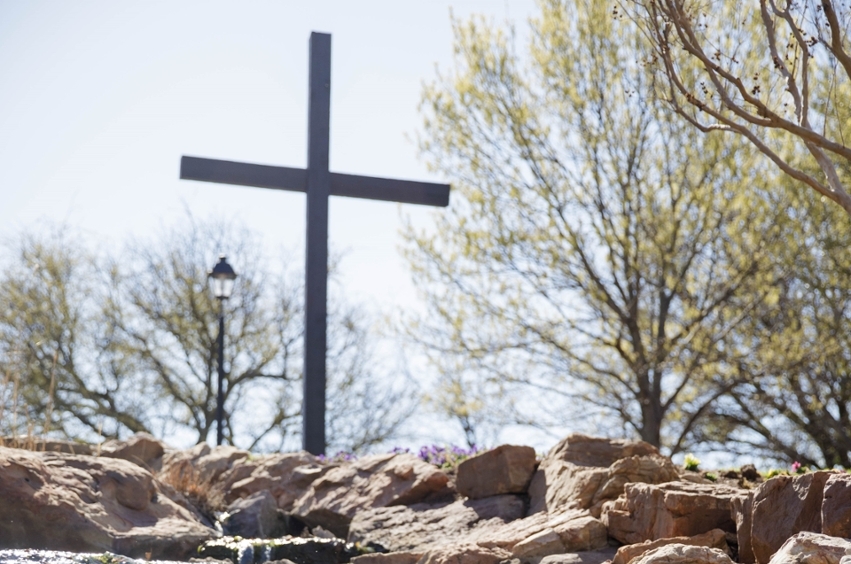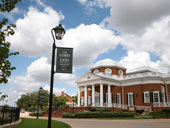The Resurrection Changes Everything
This article is over six months old and may reference former titles for DBU faculty or staff, discontinued programs, or other details that have since changed. If you have any questions, please contact us at news@dbu.edu, or (214) 333-5172.

He walked effortlessly on water, fed multitudes with just a few loaves and fish, and calmed a raging storm with only two simple words, but now this same Man at whom the crowds marveled hung draped for all to see in public shame on the horrors of a Roman cross.
The hopes of His followers had been built up only to be suddenly dashed. Jesus seemed so different from anyone else they had ever known, and they had left everything for Him. Was it all worth it? Had they all been deceived?
Beginning with the night of His betrayal and arrest immediately following the Passover meal – in ancient Christian liturgy Thursday evening commences the “Great Three Days” also known as the Paschal Triduum – the followers of Jesus fell under a shadow of disappointment, doubt, and despair. Was this the same One who had earlier raised Lazarus from the dead and could have prevented it from happening?
Jesus could perform miracles of healing without even being physically present (Matthew 8:5-13), so how could it be that their Lord now appeared to be helpless before the oppression of His own death? I wonder if His followers were thinking to themselves what was voiced in scorn by the chief priests near the cross: “He saved others, and He can’t save Himself?” (Matthew 27:42). Indeed, Peter had earlier taken matters (and a sword) into his own hands to protect Jesus from His enemies.
The disciples still did not understand that the Son of God had chosen to walk with us all the way through the wilderness of the human condition and even taste the forsakenness of death for us. It was the only way that the triumph of His sinless obedience to the Father – vindicated by the resurrection – could become our salvation by grace through faith and new birth in the Holy Spirit.
Just as it was not until Lazarus was raised from the grave that Mary and Martha learned why Jesus had delayed His arrival in Bethany, and just as the two downcast men who walked unknowingly with Jesus on the road to Emmaus were slow to see the truth, the significance of Jesus’ death only became clear to His followers in looking backward through the event of His resurrection.
In the hurt and confusion surrounding His crucifixion, Jesus’ followers judged the unseen by what was seen – and their future by the present. Don’t you and I often do the same? It is a natural and swift path that leads from suffering to discouragement and doubt. In reflecting on the Paschal Triduum, the Resurrection establishes our hope that we can judge what is seen by the unseen – and the present by our future. This is faith: “the certainty of things hoped for, the confidence of things unseen” (Hebrews 11:1). The Resurrection was - and is - the triumph of grace over sin, good over evil, and life over death. “In this world you will have trouble. But take heart! I have overcome the world” (John 16:33).
Just as His followers were told to be comforted in believing that they would see Jesus alive again in the flesh, in the mystery of our own sorrows the same God of the Resurrection is reigning for our good, and we can believe with hope in His future promises unseen to us. Understanding the purpose behind all our particular hardships may only become clearer in looking backward from the future – if not in this life than in the eternal glory that will far outweigh all our afflictions (2 Corinthians 4:17). Yet Jesus even now draws us close in our troubles, as He often did with His first followers, gently saying, “O, you, of little faith, why do you doubt?”
Under the weight of our pain, we can faithfully endure with hope, because He is the same God today who brought the joy and gladness of Resurrection Sunday out of the mysterious suffering and agony of Good Friday. He will, in the abundant riches of His kindness, also redeem all our distress in wonderful ways we wait with hope and faith to see. To God be the glory.
Dr. Michael Whiting is an Assistant Professor of Christian History and Leadership in the Cook School of Leadership at Dallas Baptist University. He also served as the Director of Written Content in University Communications.








